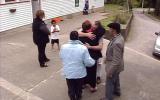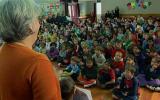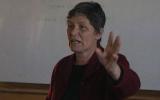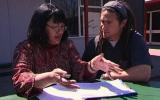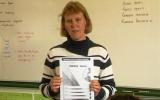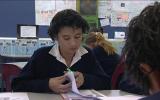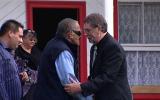Section navigation
Filter by result
Sections
Key collections
- Te Mana Kōrero(12)
- NZC(7)
- Te Marautanga(4)
- Te Kotahitanga(10)
Principles
- Productive partnerships(54)
- Identity, language and culture(34)
- Ako(11)
Effective leaders
Thank you for visiting. This site will close in July 2025.
Please visit Tāhūrangi - the new online curriculum hub from the Ministry of Education.
“pedagogically focused leadership has a substantial impact on student outcome”
School Leadership and Student Outcomes: Identifying What Works and Why. Best Evidence Synthesis Iteration [BES]. Ministry of Education. November 2009
Leadership is the process of social influence in which one person can enlist the aid and support of others in the accomplishment of a common task.
Governance relates to decisions that define expectations, grant power, or verify performance. It consists of a separate process or of a specific part leadership processes.
The resources you will find on this page reflect the effective leadership and governance that support Māori learners to achieve education success as Māori.
-
Whānau involvement
 28/06/2011
28/06/2011
Filed under: Productive partnerships | Effective leaders
The need for whānau involvement does not diminish as students advance through schooling, and schools need to ensure their relationships with whānau extend beyond the immediate family. Regular communication is key. (Extract from ‘Te Mana Kōrero: Relationships for Learning’, 2007).
-
Whānau involvement at Hiruharama School
 28/06/2011
28/06/2011
Filed under: Productive partnerships | Effective leaders
Whānau and community involvement in school life can and should extend beyond supporting the school at cultural and sporting activities, and lead to engagement which directly supports students’ learning. At Hiruharama School, whānau are engaged at every level including strategic planning. (Extract from ‘Te Mana Kōrero: Relationships for Learning’, 2007).
-
Whānau and communities
 28/06/2011
28/06/2011
Filed under: Productive partnerships | Effective leaders
Relationships with whānau and communities. Research evidence shows that when schools develop relationships with whānau and communities around child learning, then the learning outcomes improve for all their students. (Extract from ‘Te Mana Kōrero : Strengthening Professional Practice’, 2005).
-
Validating cultural knowledge
 28/06/2011
28/06/2011
Filed under: Productive partnerships | Identity Language and Culture | Effective leaders
Developing an inclusive curriculum. At Rotorua Lakes and Greymouth High Schools, student and whānau knowledge is validated through its introduction into the context for learning. (Extract from ‘Te Mana Kōrero: Strengthening Professional Practice’, 2005).
-
Critical reflection - Te Mana Kōrero
 28/06/2011
28/06/2011
Filed under: Effective leaders | Effective teachers
A feature of effective professional learning is critical reflection on practice. At Greymouth High School and Waitara Primary School, teachers are opening up their classrooms to others for peer observation and feedback. (Extract from ‘Te ManaKōrero: Strengthening Professional Practice’, 2005).
-
Using data to inform practice
 28/06/2011
28/06/2011
Filed under: Effective leaders
Diagnostic information should be obtained from a wide range of sources. The close analysis of curriculum data is critical to informing teaching and learning decisions. (Extract from’ Te ManaKōrero: Strengthening Professional Practice’, 2005).
-
Filed under: Productive partnerships | Effective leaders | Effective teachers
Just as teacher-student partnerships need to be culturally responsive and mutually respectful, so do the partnerships between school, whānau and iwi.
-
Undertaking professional development on issues related to Māori students’ engagement and achievement 18/05/2011
Filed under: Ako | Effective leaders | Effective teachers
The essence of these clips is that school leaders and teachers need to participate in professional learning and development that is specifically designed to increase their understanding of issues associated with Māori student engagement and achievement, so that educators can lift their capability in this area and work more effectively with Māori students.
-
Taihape Area School: Goal setting 18/05/2011
Filed under: Productive partnerships | Effective leaders
In this clip we see the benefits of teachers, students and whānau coming together to set goals – and to celebrate success in learning.
-
Taihape Area School: What has worked 18/05/2011
Filed under: Productive partnerships | Identity Language and Culture | Effective leaders
This clip shows what Taihape Area School has done to create links between the school and its community, to establish a partnership, thereby giving effect to the requirements in TheNew Zealand Curriculum to accommodate local needs and consult with the community.







